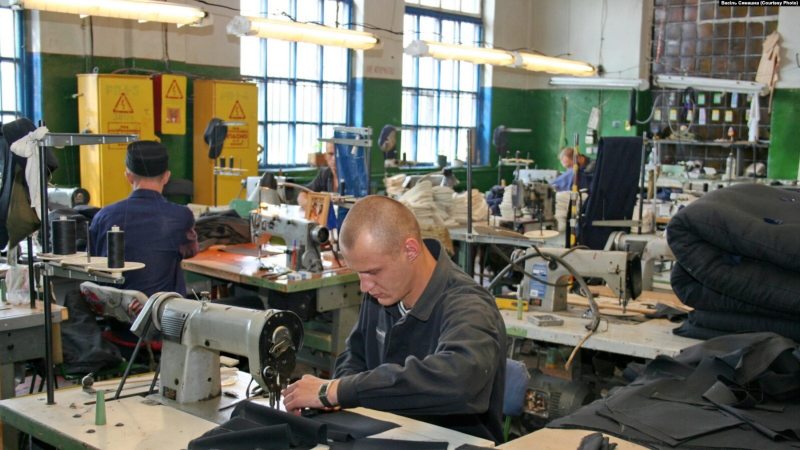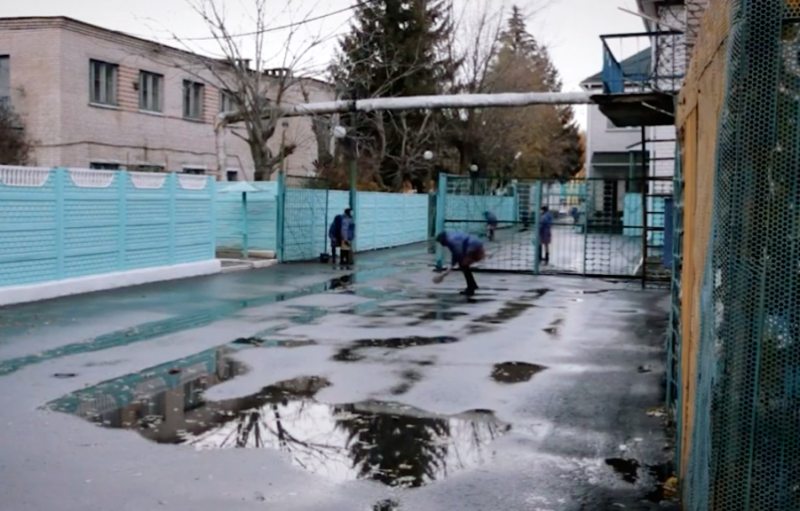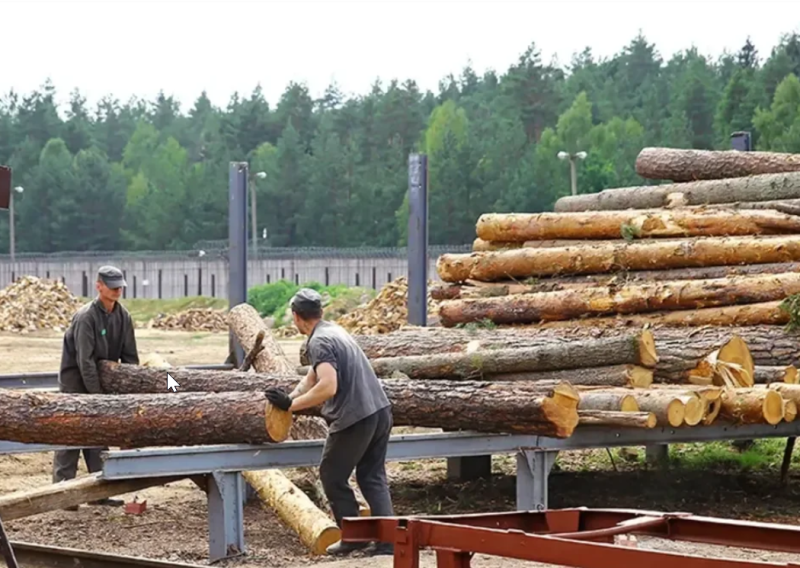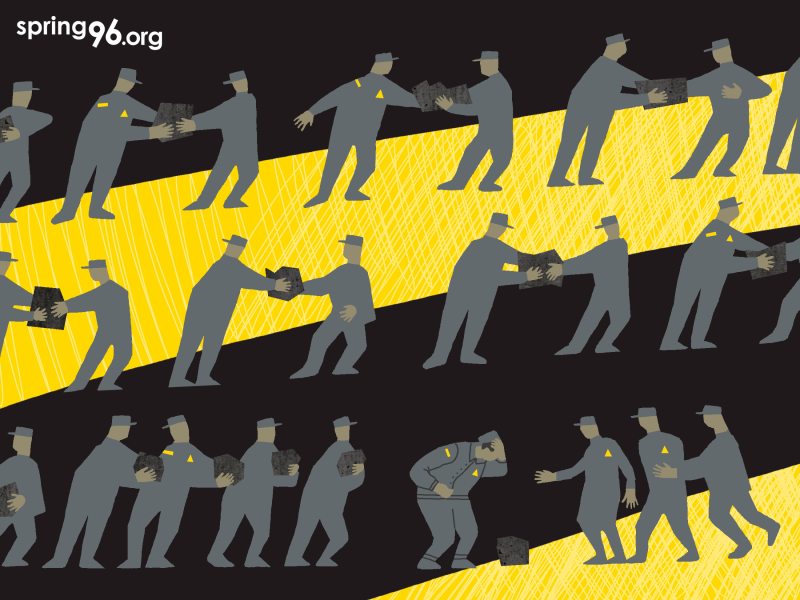Harmful, dirty, meaningless: what kind of work do political prisoners do in Belarusian penal colonies
Work in Belarusian penal colonies is called forced labor because prisoners are usually required to do hard and dirty jobs, where the administration of penitentiary institutions turns a blind eye to violations of safety regulations. The Penal Enforcement Code stipulates that all convicts must work while serving their sentence. The exception is made only for senior citizens, people with disabilities, and pregnant women. Maryia Sliaptsova, coordinator of the Respect-Protect-Fulfil public campaign, recently noted that convicts cannot refuse work, even if they consider it difficult for health reasons. Refusal to work is a "malicious violation of internal regulations" and it entails punishment — a penal isolation cell, or possibly the initiation of a new criminal case under Article 411 of the Criminal Code. The prison administration is increasingly using this practice to persecute political prisoners to extend their sentences.
Navapolack penal colony: "grill" and charcoal
In the penal colonies, all prisoners, with rare exceptions, must work in the industrial zone. In Navapolack medium security penal colony No. 1, considered the dirtiest in Belarus, prisoners sort plastic waste from industrial enterprises, produce coal, recycle secondary raw materials, engage in woodworking, and do other unskilled work.
Former political prisoner Artsiom Khvashcheuski, who served his sentence in Navapolack, recalls:
"My job was to clean the territory of the industrial zone: in summer it was not difficult. We needed to push huge puddles away into the drain after the rain with snow removal tools — so ten people ran around and chased puddles on the asphalt. It was also necessary to remove the wood chips that accumulated in the industrial area during woodworking, and the wooden bark that remained after deliveries to the warehouse. We did this with special brushes, which we called "poodles" — they looked accordingly. For this work, after deducting accommodation and meals, as far as I understand, you received two rubles [about 0.5 euro] for buying groceries…
...In addition, I saw the 4th squad working there, which mostly had convicts imprisoned under Article 328. They were forced to work a so-called 'gril'. A fire was lit in a barrel and various rubbish was thrown into it — plastic, wires, etc. At the same time, there was an unbearable stench in the industrial zone. If you're a little further away, you can still stand it. Political prisoners were also sent to work the 'grill'."
The prisoners call charcoal burning the most harmful work in penal colony No. 1.
"Prisoners burn firewood in metal barrels without oxygen access. They breathe smoke, and the skin absorbs the soot. Viktar Babaryka was transferred to such a job in November 2022 and had to work 9 hours 6 days a week."
Another kind of harmful work in Novapolack is the production of copper from old cables and wires brought from telecommunication and technical enterprises.
"The cables need to be stripped of insulation and the metal core must be removed. You're provided only with a special knife with a brand. Each has its own. No gloves and filters. Political prisoners work six days a week and have only one day off on Sunday. Sometimes political prisoners work on holidays." Radio Svaboda quotes Navapolack prisoner Mikalai.
Former political prisoner Hleb Hatouka was forced to sort polyethylene in the penal colony:
"The working conditions were objectively terrible. When we were working, plastic dust was rising in the workshop. We were constantly breathing it in. You spend a day at the industrial zone, and then when you blow your nose everything is black. I put on a medical mask, but after a couple of hours in the workshop, a black spot formed on it at the level of the nose, where you breathe. Prisoners who have been incarcerated for a long time said that after months of such work, their nails began to peel off, the skin turned yellow, and the fingers swelled. Prisoners can be paid with a couple of kopecks a month [less than one euro cent] and that's it."
Another political prisoner who served his sentence in Navapolack, Mikhail, recalls how the penal colony was "segregating" waste:
"There is a so-called 'prohibited area' in the penal colony — a territory that prisoners are forbidden to visit. There is a garbage pit behind the barracks buildings and only political prisoners are forced to carry construction waste there."

- Sewing production in penal colony No.13, Hlybokaje. Photo by Vasil Siamashka
Disassembly of "rubber" in Ivacevičy and Babrujsk
At the industrial zone in penal colony No.22 in Ivacevičy, prisoners work with reinforced concrete products, engage in woodworking, sew, and process metal.
Vital Zhuk, a former political prisoner from Babrujsk penal colony No. 2, tore metal cords out of rubber.
"We were sent to work 'rubber'. The prisoners had to pull out the cord from rubber brought to the Belshyna enterprise. According to other prisoners, some of it was taken towards Ukraine, some of it was used to make police batons, etc."
"Preventive" work in women's penal colonies
Former political prisoner Natallia Kukishava speaks about preventive work in Homieĺ women's penal colony No. 4
"You don't just sit there. You are always assigned to some preventive work. For example, in winter I never wore flip-flops, I always wore street shoes. For we were constantly ordered to clean the territory: to clean the snow or puddles. That penal colony was probably the cleanest place in Homeĺ because we cleaned there so often. How we cleaned up puddles in the colony. First, you use shovels and brooms to push water into the sewer, which is located above the puddle level. This is done even while it's raining. If a major inspection is expected, it was necessary to additionally clean the puddles with rags."

- Women clean the territory of penal colony No. 4 in Homeĺ. A shot from a documentary film Debut by Anastasiya Mirashnichenka
In addition to the main work, prisoners can be involved in the so-called "collective self-service" without getting paid. They cleaned the premises and territory of prisons and penal colonies, unloaded food for the kitchen, carrying heavy bags of potatoes and vegetables.
Woodworking: sawmill, pallets, and boxes for artillery shells
Brest Viasna reported on military orders that prisoners in this penal colony are forced to complete:
"They also produce boxes for weapons and artillery shells here. Because of the sanctions, they stopped making tables, stools, windows, and even bundles for fireplaces for export and switched to boxes for weapons. The Ministry of Defense has become the main customer."
Ruslan Akostka recalls his "work" experience in penal colony No. 9 in Horki.
"The main work in Horki is related to woodworking. They make pallets and crates for artillery shells for the needs of the Russian army. A man who builds pallets creates several thousand dollars of worth a month, but from this amount he is paid five rubles [1.5 euro]... in a month, a prisoner loses 10 kilograms of weight, because lunch is a few spoonfuls of potatoes." he said.

- Woodworking workshop in Babrujsk penal colony No.2. Photo: Novaya Gazeta
Former political prisoner Zakhar Yanouski in penal colony No. 3 was chopping firewood and it was not the worst, although physically demanding work:
"I chopped firewood with a partner and got more, about 20 rubles for the two [almost 6 euros]. Chopping firewood for the bakery is not difficult. It was harder to carry heavy beams and logs and load damp pallets onto the car, which sometimes caused back pain in many people, especially against the background of a poor prison diet.
However, sometimes it happened that there was not enough work for everyone. Then they were looking for something to do because if there was some check, you can get a penalty if you do nothing."
Collective self-service: cleaning up puddles and "flowers in a swamp"
After the main work, prisoners are often forced to clean the premises. Vital Prokharau, who was serving his sentence in Babrujsk, said that it was necessary to clean the room of his section, the corridor, washbasins, the recreation room, and the sports hall:
"The territory is large, and it is necessary to sweep it, and then wash it. Even without a mop, with your hands. It's hard after the industrial zone, you get very tired. Dust the walls, wash the mirrors, water the flowers — every day. Those flowers grew in a swamp there — they were watered so often and diligently."
Representatives of the administration often use the labor of prisoners for personal needs — for example, they bring their cars to the penal colony workshop for free painting. All this suggests that the Belarusian state exploits political prisoners, and the system of work in Belarusian prisons is so inhumane that it can be equated to slavery.
"In penal colony-2, for example, representatives of the penal colony administration repeatedly drove their cars into the paint shop for free painting. The work was carried out by convicts who, let's say, agreed to cooperate with the administration — there are 30 percent or even more of them in Babrujsk penal colony. In return for the 'service', they receive certain privileges: additional visits, parcels, and so on," said Dzmitry, who recently served a sentence in Babrujsk.


















